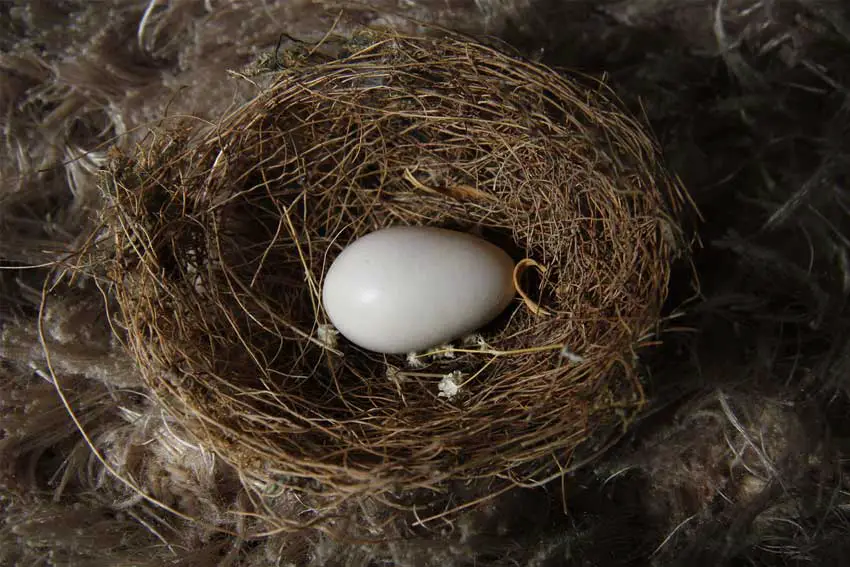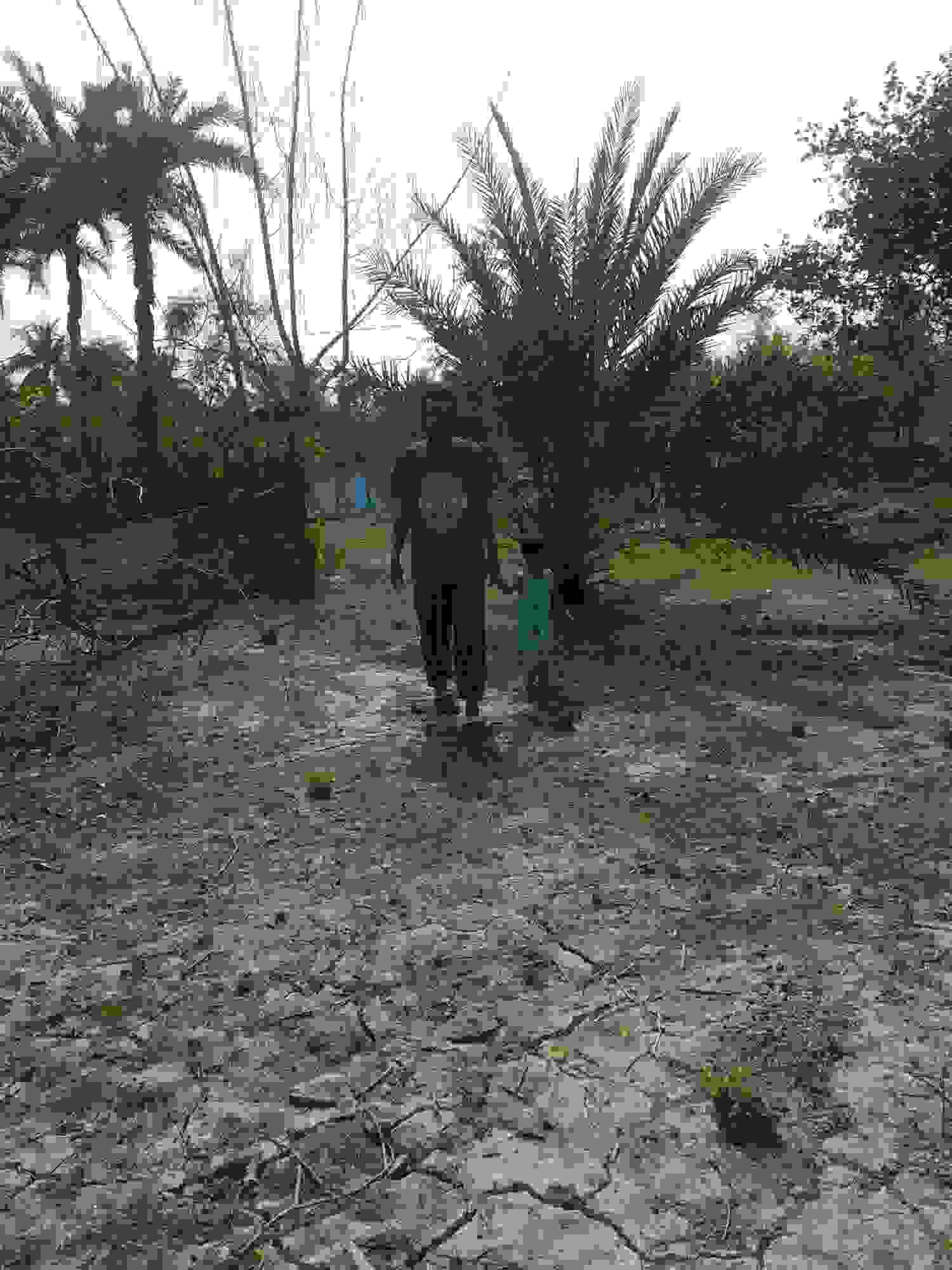Sometimes when you are mowing grass in your garden or digging the soil to plant a seedling or mixing fertilizer in the ground, you may notice a large white egg buried in the soil. You may be puzzled to see the egg (same as finding a jelly egg in the garden) in such instances if you don’t nourish animals like chickens or ducks, which sometimes lay their egg in the garden.
It may be brought by animals like foxes or weasels, whether they buried their food or dug under soil for future feasting. Considering the size and type of eggs, you can evaluate if it is hazardous or if you can keep them there.
Large White Egg Buried in the Soil

It is such a common issue for the gardener, oftenest they find large white eggs buried or laid in the ground. But you should be cautious if you find it in your garden; since it may be a domestic animal’s egg or even it may be a dangerous animal’s egg such as a snake or reptile.
Sometimes snake or reptile lay their eggs in the soil and do not touch them right away since the mother snake or reptile may be nearby. Again infant snakes are dangerous since they come out from the eggshell.
Furthermore, it will be dangerous if foxes or weasels bring the egg. Though snake or reptiles egg appears to be hen or duck eggs, you can not differentiate them seemingly, so each thinks you need to be considerate in such conditions.
How to Identify When You Get a Large White Egg Buried in the Soil?
Identifying the egg buried in the soil must be essential for a thorough inspection. When you find a large white egg hidden in the ground, you must carefully inspect it before making further decisions.
Several issues are crucial to finding the egg type and infrastructure to assume the origination. It may not affect your garden; contrariwise, it may hatch into critters that canker your plants and soil.
So initially, you must evaluate the egg’s characteristics and maintain some precautions before touching it.
Observe well the eggshell and structure
Take a profound observation of the color of the eggshell, and if it is white, it is probably a hen’s or duck’s egg. If it has scattered spot color or varieties of color except for white, it may be the eggs of another dangerous animal.
If the eggshell has a rigid structure and is discernible to grasp, such as chicken eggs, they are less likely to be any insect or animal eggs. Else if the egg is clustered as a pouch, they may be insects or other animals.
Placement of obtaining the white egg
Consider the placement or surroundings where you get the egg, and if you get it in your backyard or garden, especially if it nearby any pond, it may be laid by turtles, reptiles, or snakes. You can quickly determine by seeing the egg because these animals’ eggs differ quite from domestic animals’ eggs.
Duck sometimes lays their egg beside the pond, but you need to inspect whether it has any scattered spot color, sometimes, a duck’s egg may be a bit different in color, but its shell is relatively rigid and smooth.
Pursue by touching the eggshell
Touching the eggshell if it feels soft and leathery, it won’t be any domestic animal’s egg; it has the most probability of snake, reptile, or turtle. You can pursue it by touching the exterior shell of the egg if it seems different from a domestic animal.
Birds lay their eggs
Sometimes it has a bit of probability when birds lay their eggs on any ground, which may be tiny in size. So you can assume it by seeing it lay by the chicken or duck.
Fox has brought the egg!
Most of the time in the village site, foxes steal domestic animals, even their eggs, and hide them by digging under the soil. If you get large white eggs buried in the soil, foxes mostly hide them under the ground.

FAQs On Large White Egg Buried in the Soil
Q1. What are the white eggs buried in my garden?
Ans: Foxes or weasels conceal eggs beneath the ground. It may lay by reptiles, snakes, or turtles. Depending on the size and seemings, it can be assumed which animal laid it.
Q2. I found an egg while digging in soil for planting a seedling. Is it dangerous?
Ans: Be sure about the placement where you get the egg and inspect the infrastructure. Don’t touch it if it seems different from chicken or duck eggs.
Q3. I have found several small eggs with spot color. What is it?
Ans: Assuming the characteristics of the eggs, they may be laid by any dangerous animal. You should better throw them off to the garden.
Conclusion on Large White Egg Buried in My Garden
Most of the time, people fallen an odd incident when mowing grass or planting seedlings in their garden by getting a large white egg buried in the soil. Foxes or weasels have probably concealed it because they preserve their food under the ground.
There is another contradiction, sometimes, reptiles, snakes, or turtles lay their eggs in the soil. After all, if you see a large white egg buried in the ground, you have to inspect it well by evaluating the infrastructure of the eggshell and follow the precaution before touching it.

I’m Shofi, a passionate gardener and blogger. I have 10+ years of experience in gardening and hold certifications in horticulture and garden design. I share my knowledge and skills through my garden blog to inspire and educate others on the joys of gardening. I try to provide valuable information and create a community for gardeners of all levels to connect and learn. My ultimate goal is to inspire others to start their own gardens and connect with nature.
